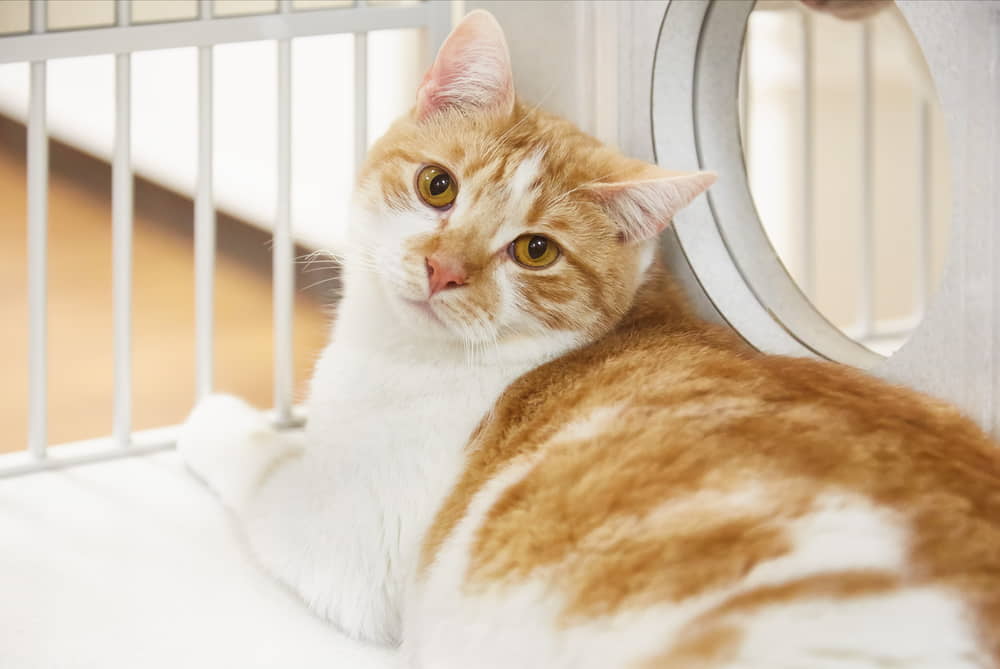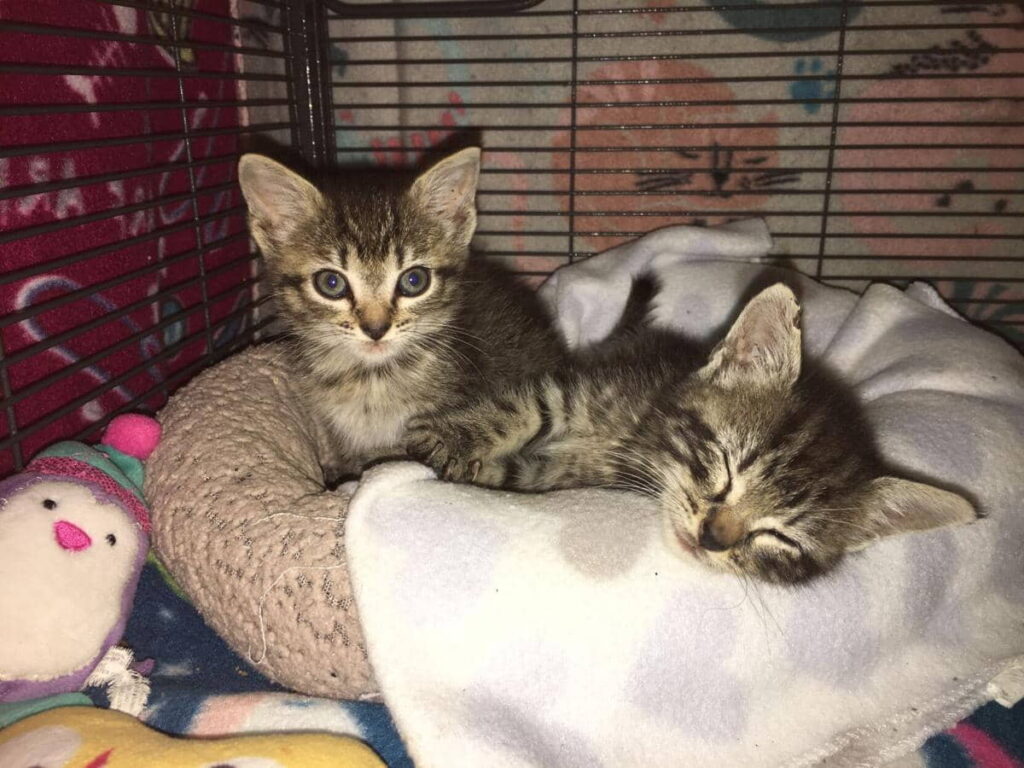Jacque Lynn Schultz, CPDT
9 Steps to Happier Shelter Cats

Cats are creatures of routine and, like many of us, are not fans of change. Relinquishment to a shelter puts their world in a topspin and stress results. The dangers of stress are well-documented. The immune system is impaired and disease is more likely to take hold. When a cat loses her sense of well-being, she is more apt to engage in self-destructive behaviors such as over-grooming or sucking on body parts to the point of injury. Conversely, stress may also cause a cat to stop grooming herself. Fear and defensiveness can take over and the cat’s feisty attitude may make her impossible to place. The following nine recommendations will enrich the lives of your shelter cats so you can showcase them at their best:

- Provide hide-outs that are dark and cozy or high off the ground. Stressed newcomers need a retreat from which they can assess their novel surroundings unobserved. Hide-outs can be as opulent as whimsical skywalks in colony housing or as simple as a paper bag in the back of a traditional cage. Avoid placing fearful cats in bottom cages as it increases their feelings of vulnerability Utilize vertical space in colony housing by installing disinfectable multi-level climbing furniture.
- Handle with care. Before quickly grabbing for a cat, spend a moment quietly talking to her. Offer a single finger to see if she will mark it with her facial pheromones. (Glands are located in the chin, whisker bed and above the outer corner of the eyes.) Once you smell like her she is more apt to relax and accept handling. Always will beinfect your hands before touching another cat.
- Ensure that the lighting in the cat kennels mimics natural day/night light cycles. Contrary to popular belief cats are not nocturnal. They are crepuscular creatures, most active at dusk and dawn. Too many hours of darkness or fluorescent lighting are harmful to their well-being.

- Quiet please! Cats have more sensitive hearing than humans, and may startle and aggressively strike out when under stress. Colony housing and cat wards should be quiet, well sound-proofed rooms that house only members of the feline persuasion. While most studies of music in kennels have focused on dogs, common sense leads one to conclude that classical music, light jazz, new age music and even lullabies set to the rhythm of the human heart (Heartbeat Music Therapy) arc more relaxing for cats than rap, rock and hip-hop.
- Deliver meals on schedule. Cats thrive on routine. Grab a feather wand or other interactive toy and let these pint-sized predators stalk, pounce and “kill” to their heart’s content. If possible, offer both canned and dry food until it is determined which food the cat favors. Some cats will fast to the point of starvation rather than eat an unfamiliar food.
- Install comfortable bedding to promote sweet dreams. In a home setting, cats seek out warm, upholstered surfaces for their many catnaps. Make sure every cat has something padded to lie on. Whether you use plush cat beds, volunteer-crocheted cage cozies or shoe boxes lined with donated towels from the local health club, your cats will be snoozing in comfort.

- Engage the cats in play. Young cats in particular need the chance to blow off steam, especially those held in small stainless steel cages. Serving meals the same time each day is comforting to them. A tired cat is less likely to swat at potential adopters or engage in play aggression.
- Soothe your shelter cats with a light touch. Cats will benefit from soft brushing, gentle stroking or any of the recognized forms of cat massage such as Tellington Touch. Not only is daily touch therapeutic, but the handling can double as a mini-physical exam, revealing any new injuries, illnesses or parasites.
- Stimulate their minds. All alone in a sterile cage with nothing to do…why, a cat could go crazy! Catnip, toys, mobiles, scratch pads, kitty videos, fish tanks, maybe a few well-placed birdfeeders outside the cat ward windows can occupy a shelter cat’s attention and make the facility a more scintillating place to be.
Wondering about 20 Questions to Ask Before You Foster a Cat? Check it out on our latest post!
